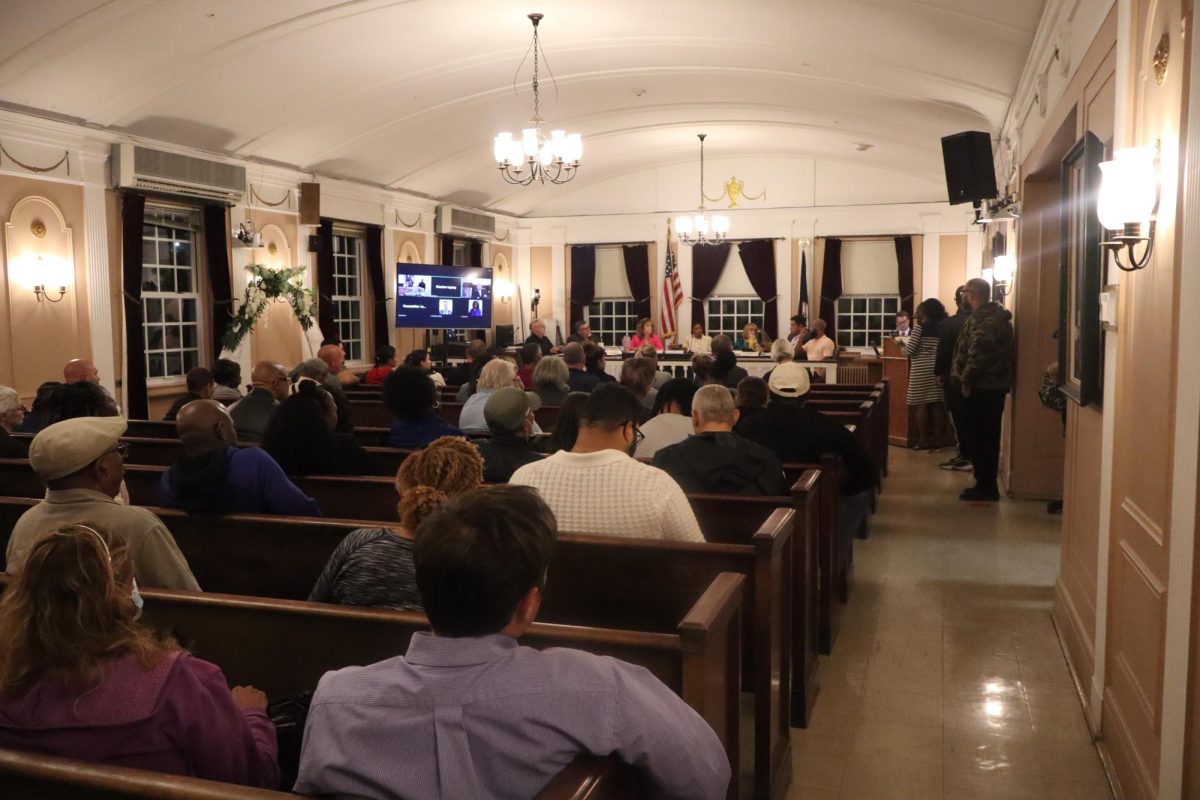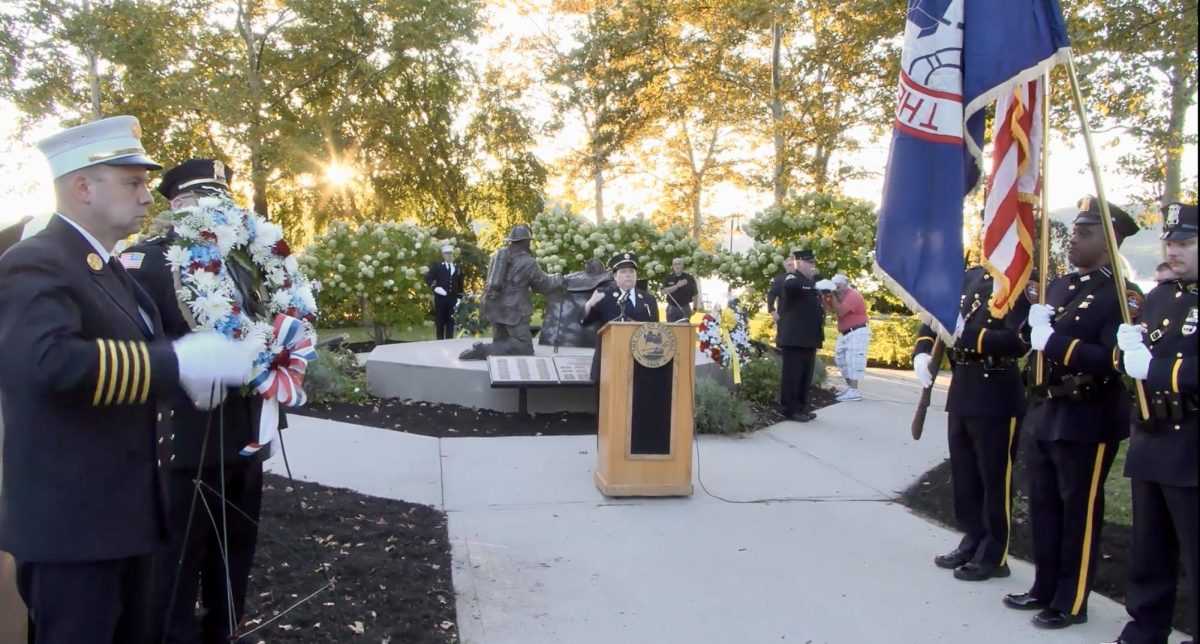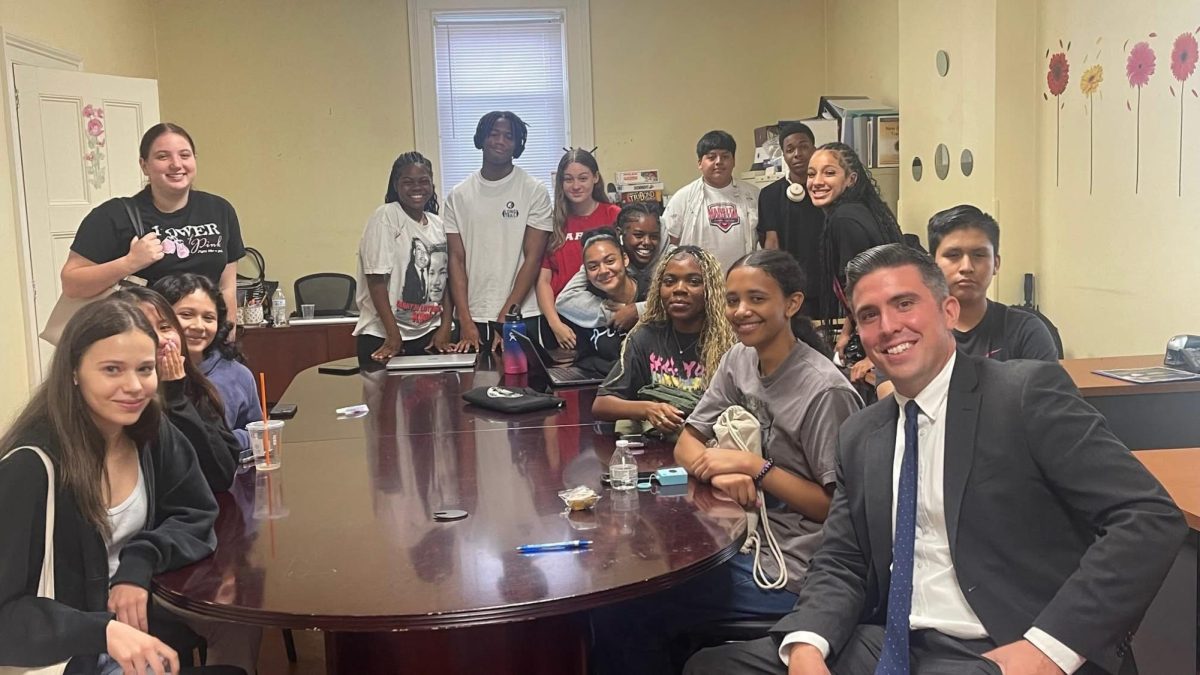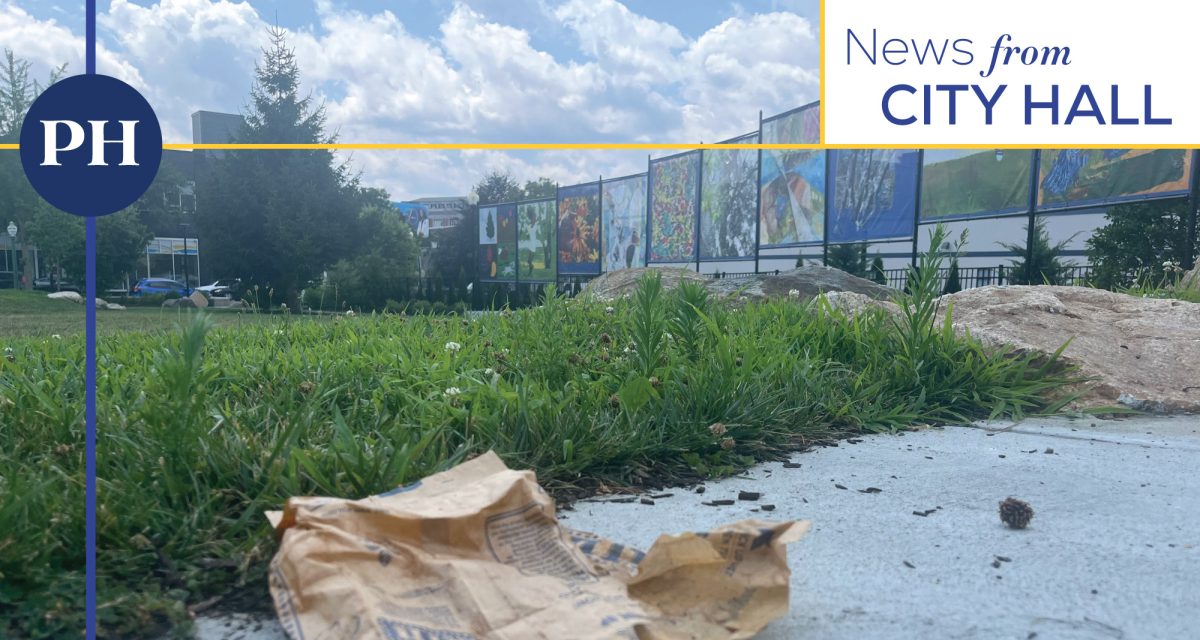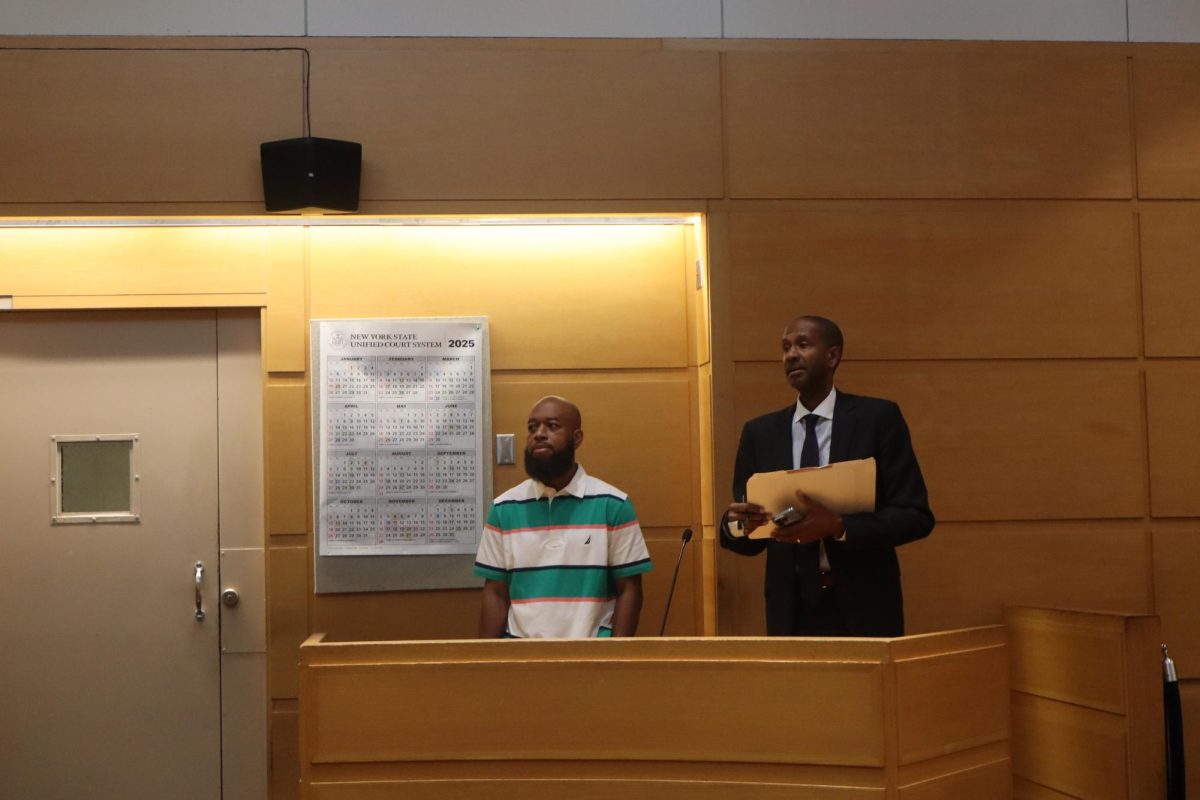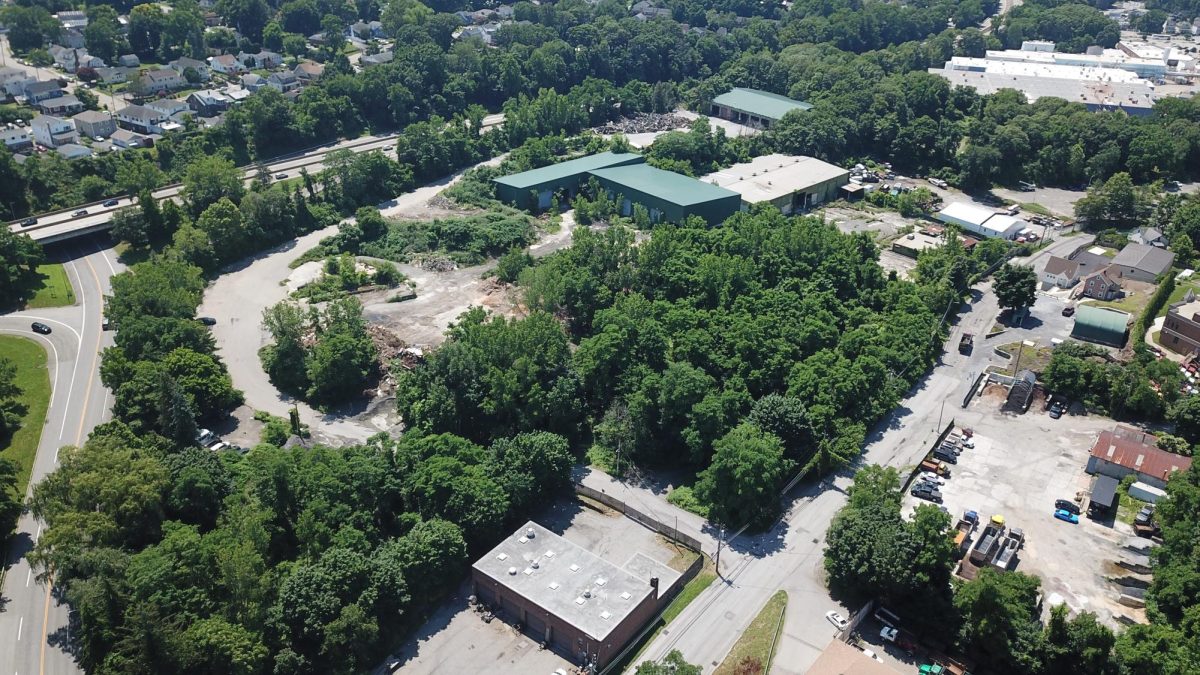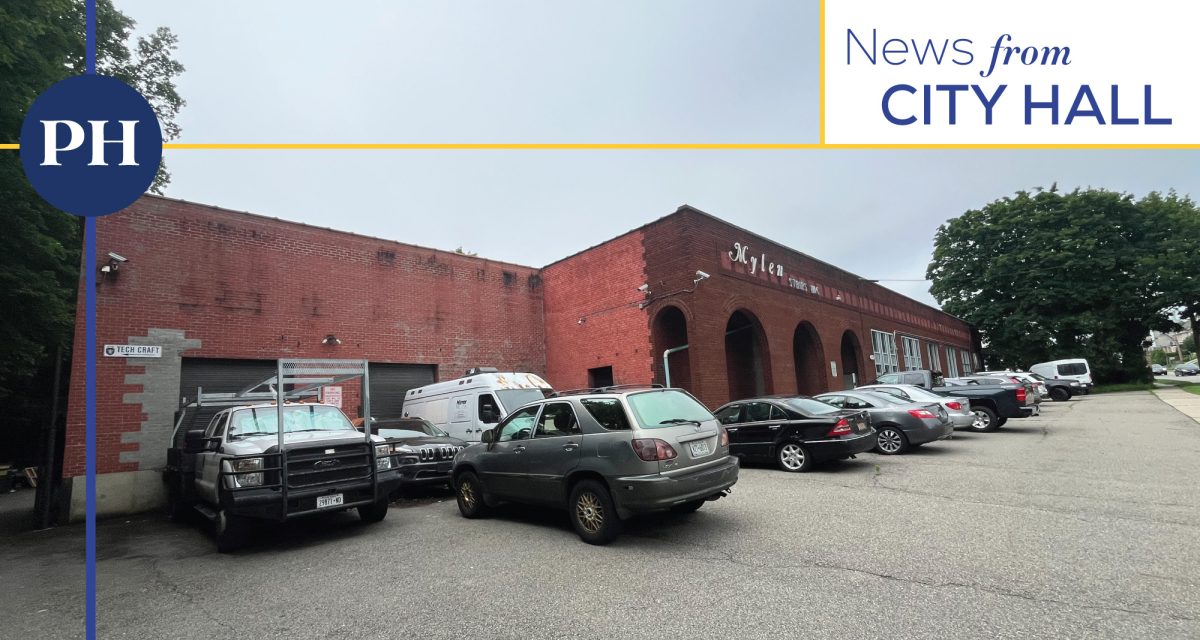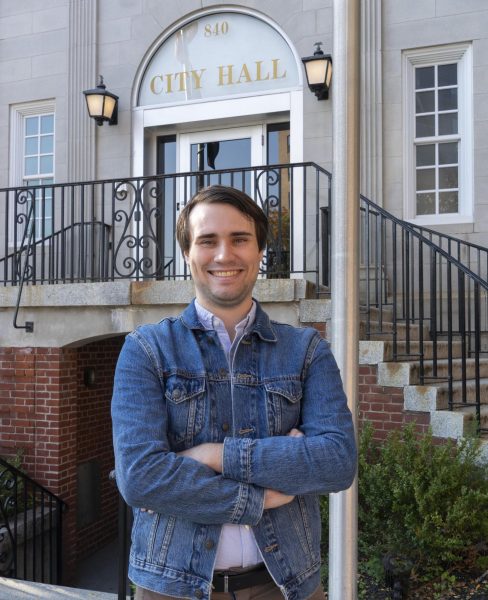Cannabis is once again bringing Peekskill together — and, depending whom you ask, it’s for better or for worse.
On Monday, Sept. 8, a public hearing at City Hall on a proposed cannabis microbusiness at 710 Washington Street saw about 18 residents participate in a heated discussion — both for and against the proposed project.
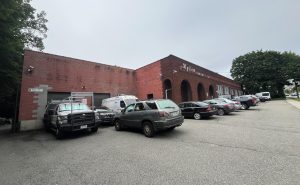
Grand Street Cannabis Co., a state-licensed cannabis microbusiness, seeks a special permit to occupy about 7,300 square feet of a two-story multi-commercial tenant space located within the C-3 Zoning District. It would have no retail on site and focus on cultivation.
Two public hearings were already held on the application: one at the Planning Commission on Aug. 12 and another at the Common Council on Aug. 18. The Sept. 8 public hearing saw about 12 speak in opposition and 6 in favor.
Those in opposition shared concerns of proximity to an adjacent residential neighborhood and potential lingering odors, as well as thoughts of there being too many cannabis businesses in the city, poor communication on the project, to just being against marijuana, period.
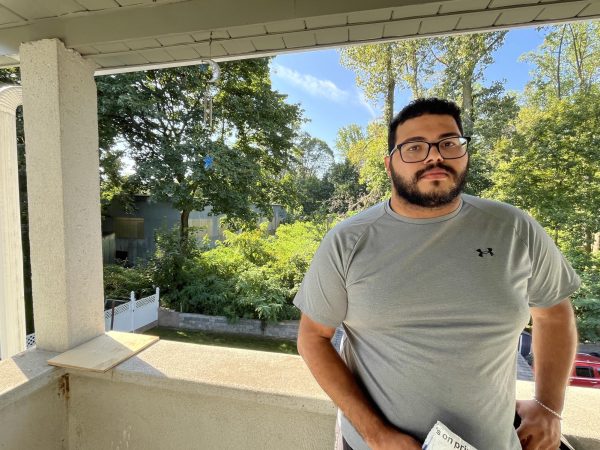
Regina Brons, a resident on Roosevelt Avenue, adjacent to the proposed microbusiness, spoke against it at previous public hearings, telling the Common Council she canceled her travel plans to not miss the public hearing. Both she and her husband oppose the project.
Another Roosevelt Avenue resident, Zaira Bailey, said that the city is currently on track to hold at least 22 percent of Westchester County’s dispensaries, which currently has 22 dispensaries. The city currently has two open dispensaries, two unopened dispensaries, one approved microbusiness, and two microbusiness applications in process.
“Peekskill is a tight-knit community,” Bailey said. “We’re not intending to have our audience inundated with products and distribution because other townships in Westchester did not want them in their communities. This is not what we intended when we allowed this to go forward.”
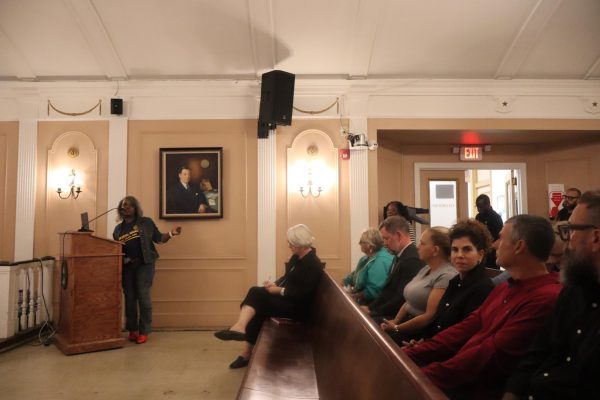
Priscilla Augustin, president of the Peekskill chapter of the National Association for the Advancement of Colored People (NAACP), said if the location was not an appropriate place for the applicant’s business, it is the council’s job to consider encouraging them to move it somewhere else.
“We’re talking about people who do not want this business in their backyard,” Augustin said. “There are other places in Peekskill, since Peekskill is allowing these businesses to come in. There are other places that are not set in a neighborhood where little ones are running around.”
Those in favor believed the business could bring in revenue, combat taxes, and create jobs and that cannabis is valuable as medication. In regard to the odor issue, they rebutted that if there is a proper duct system in place, there won’t be a problem. Those individuals included a Peekskill cannabis grower, residents on Ridge Street, and business owners.
Dwayne Reith, the building owner of 710 Washington Street for 15 years, spoke in favor of the project, saying the applicants have spent hundreds of thousands on the “best technology” and filtration systems.
“My niece works in the building for the past 20 years. I am not going to let my niece be subject to any type of fume or anything to harm her,” Reed said, adding he needs tenants to help pay taxes. “I need to support the community and have this come to life. They’re going to be in a one-foot-thick wall above Washington Street with the filtration system facing out, nowhere toward their houses.”
Joseph McDonald, a co-owner of the proposed microbusiness, said their intent is to hire from within Peekskill, beginning with three jobs, growing between seven and 10 within two years, then reaching 15 at full capacity. He told the Peekskill Herald they intend on using an odor mitigation system called AirROS that is “always active” in the rooms with plants.
“It’s been used for [over 15] years now for breaking the chemical bonds of organic compounds so you’re eliminating the smell prior to any filtering,” McDonald said. “The same technology is used for bacteria and mold cleaning, so it was utilized during Covid for killing the virus in hospitals.”
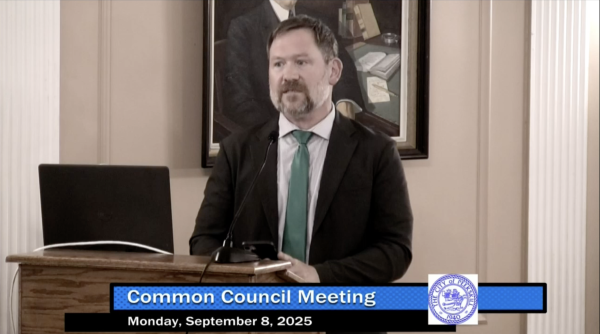
Director of Planning Carol Samol has reached out to other cities with microbusinesses that have used the same type of odor mitigation technology. Of those reached, none reported any issues with odor, she said. At the Sept. 15 council meeting, Samol plans to provide a written report from engineers the city hired to assess the effectiveness of the technology proposed by applicants.
The public comment on the cannabis microbusiness was closed for further public oral comment. It was left open for written comments for a certain period of time after the engineering report is made available to residents.
The discussion also saw a heated moment between Mayor Vivian McKenzie and Common Council candidate Garrett Dowd (which can be viewed below).
At the end of the meeting, Deputy Mayor Patricia Riley disputed allegations that the Common Council was ignoring public opinion and thanked the public for being part of the public hearing.
“Tonight I’m going to be laying in bed at whatever hour we get home and think about this. It doesn’t go away. If it went away that fast, none of us should be sitting up here,” Riley said. “We live in Peekskill too. We pay our taxes here. Some of us were born and raised here. We do care, and we are thinking about everything — what both sides are saying, what our public is talking about, what our residents are talking about.”
Four other public hearings were held, including on an annual Section 8 plan, the creation of a Tree Advisory Board, a payment in lieu of parking text amendment, and Civilian Complaint Review Board city code amendments.


